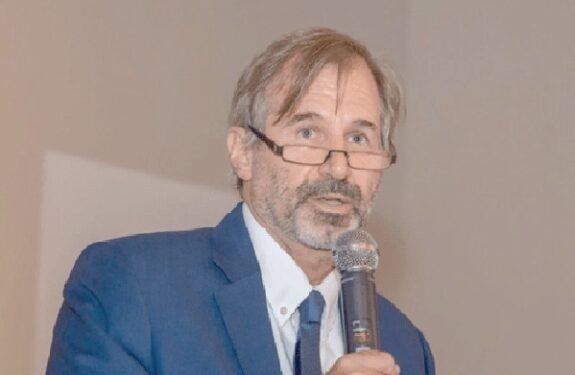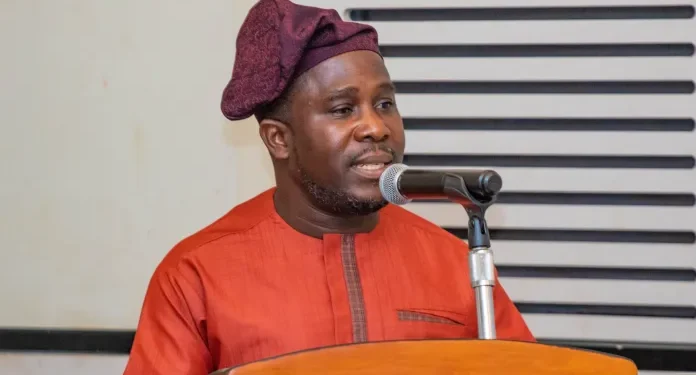The Ghana Climate Compatible Growth (CCG) Network, hosted by the Brew-Hammond Energy Centre at the Kwame Nkrumah University of Science and Technology (KNUST), has called for stronger collaboration among stakeholders to accelerate Ghana’s transition towards net zero emissions.
Speaking at a workshop that gathered policymakers, researchers, and development partners, Professor David Ato Quansah, Director of the Brew-Hammond Energy Centre, underscored the urgency of Africa’s energy transition.
“We are in the energy sector that is currently in transition.
“This transition is one of a different kind, one that is necessitated by urgent situations. We look at the realities that we live in Africa.
Professor David Ato Quansah, Director of the Brew-Hammond Energy Centre

He added, “We have about six hundred million people that don’t have access to electricity; these are the realities that confront us.”
Prof. Quansah stressed that Ghana must not only expand energy access to deprived communities but also align its policies with global sustainability goals.
He recalled the pioneering work of the late Professor Abeeku Brew-Hammond, who championed energy reforms in line with the Millennium Development Goals (MDGs), and urged participants to build on that legacy with “actionable solutions that respond to the needs of the people.”
Government Backs Transition
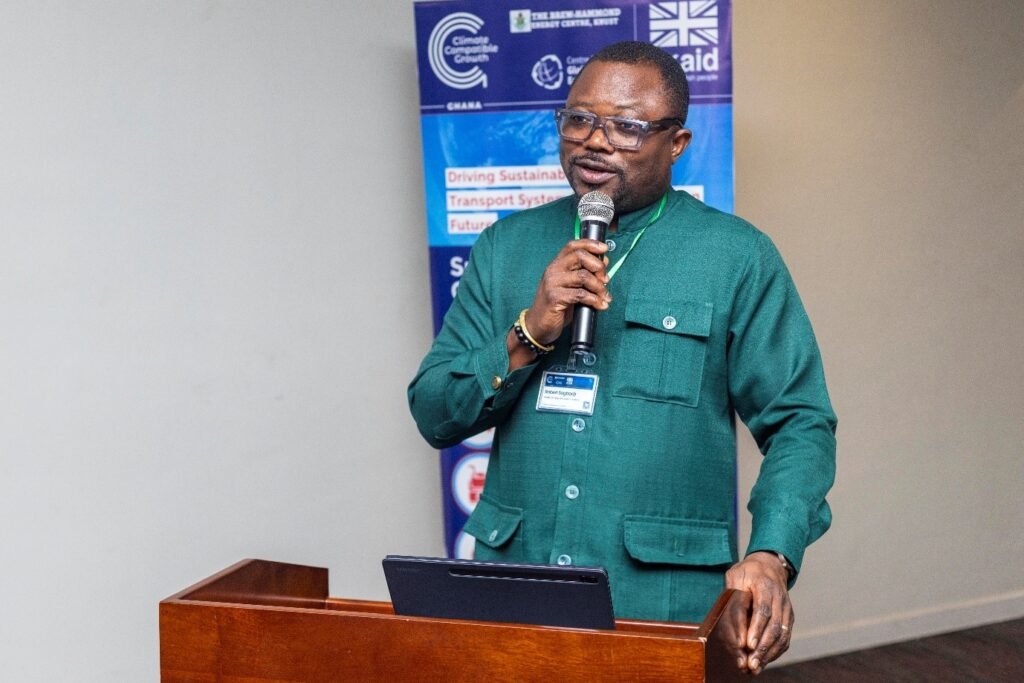
Representing the Ministry of Energy and Green Transition, Dr. Robert Sogbadji commended the CCG team for advancing sustainable energy development.
He reaffirmed government’s commitment to balancing three priorities; security, affordability, and sustainability under Ghana’s Energy Transition Framework.
“As part of our energy transition framework and the broader Ghana Big Push agenda, we are charting a pathway that combines energy security, affordability and environmental sustainability.”
Dr. Robert Sogbadji, Representing the Ministry of Energy and Green Transition
He highlighted green hydrogen as a game changer in the global energy transition, especially for decarbonizing hard-to-abate sectors like steel, cement, and heavy transport.
“Green hydrogen is emerging as a strategic enabler for this transition, with the potential of decarbonizing hard-to-abate sectors and creating new value chains.
“The position of Ghana as a hub for clean energy is inevitable, and we are striving to make sure that we have that significant signature in Ghana to influence the clean energy aspects in Africa.”
Dr. Robert Sogbadji, Representing the Ministry of Energy and Green Transition
According to him, the Ministry has already initiated technical studies and stakeholder consultations to evaluate Ghana’s green hydrogen potential, in line with the country’s Paris Agreement commitment to achieve net zero by 2070.
International partners also stressed the importance of research and evidence-based policymaking in Ghana’s energy future.
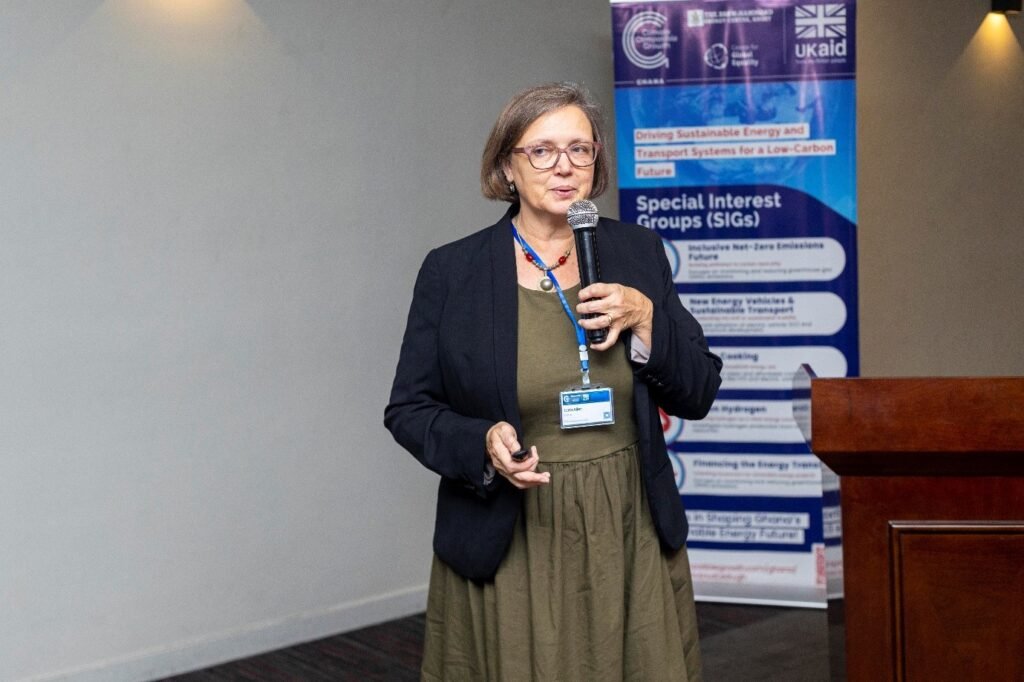
Dr. Lara Allen of the Centre for Global Equity at the University of Cambridge said her team’s role was to ensure that decision-makers had the right data to design effective policies.
“The point is to work together and to support Ghana’s energy transition.
“To do that we want evidence-based research so that decision makers can have all the proper data available. That is our job, to provide the data for the decision makers to make the decision.”
Dr. Lara Allen of the Centre for Global Equity at the University of Cambridg
Similarly, Nana Frimpomaa Arhin, from the Green Economic Transformation Team at the British High Commission, called for innovation-driven partnerships.
“Climate is underpinned by innovation and partnership.
“Modern partnership is about a partnership between a number of people that have incentive for change who use research and innovation to drive that change.”
Nana Frimpomaa Arhin, from the Green Economic Transformation Team at the British High Commission
She emphasized that she believes research must lead to action, stressing the need for a strong connection between research, government, the private sector, and civil society.
Knowledge Sharing and New Solutions
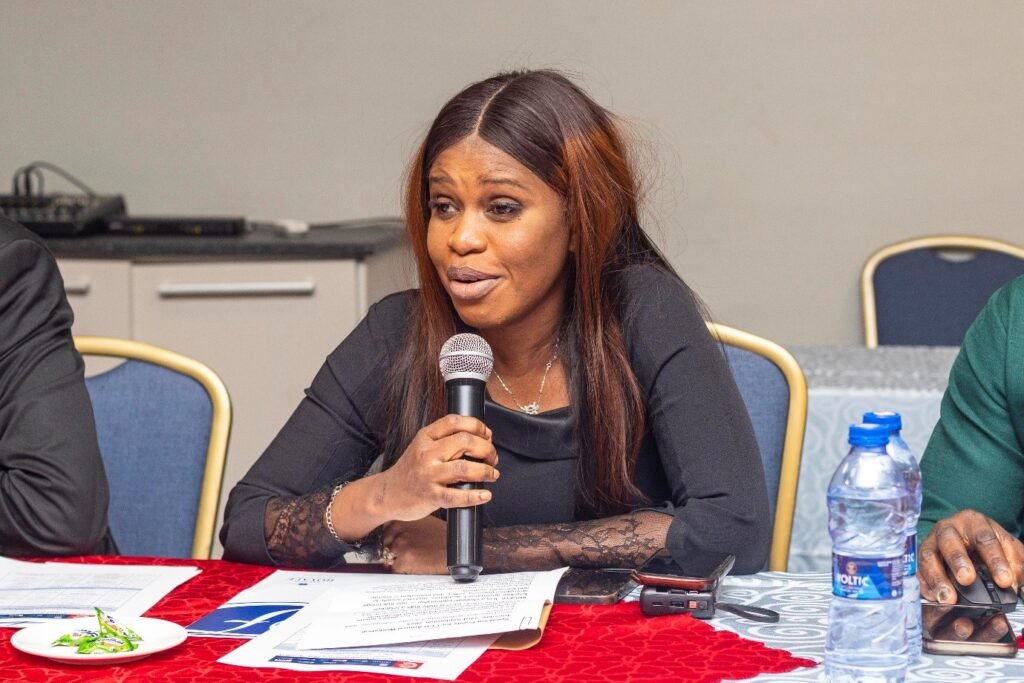
The workshop featured an array of technical sessions and presentations. Prof. Joseph Akowuah highlighted the work of Special Interest Groups, while Prof. Quansah delivered a paper on building towards a just energy transition.
Gerald Arhin presented the CCG Political Economy Unit toolkit, designed to guide decision-making in energy policy.
Other experts shared forward-looking insights. Dr. Yen Sokama-Neuyam spoke on emission tracking and reduction systems for Ghana, while Mark Amoah Nyasapor from the Ghana Atomic Commission discussed nuclear Small Modular Reactors (SMRs) and renewable hybrid energy systems as part of Ghana’s sustainable energy mix.
The sessions culminated in breakout discussions led by Dr. Chinagorom Ajike, CCG’s Country Programme Manager, focusing on five special interest groups that explored community participation, renewable integration, and governance models for energy reform.
The event brought together academia, private sector leaders, international development partners, and government officials, creating a platform for robust dialogue on Ghana’s energy transition.
As Ghana positions itself within the global clean energy movement, the Brew-Hammond Energy Centre and the CCG Network are seeking to bridge the gap between research and implementation, ensuring that Ghana’s decarbonization pathway delivers both economic and social benefits.
The workshop concluded with a shared commitment to deepen collaboration, accelerate innovation, and place Ghana at the forefront of Africa’s clean energy transition.
READ ALSO: Market Cheers as Ghana’s Treasury Auction Breaks Four-Week Drought with 15.8% Oversubscription











